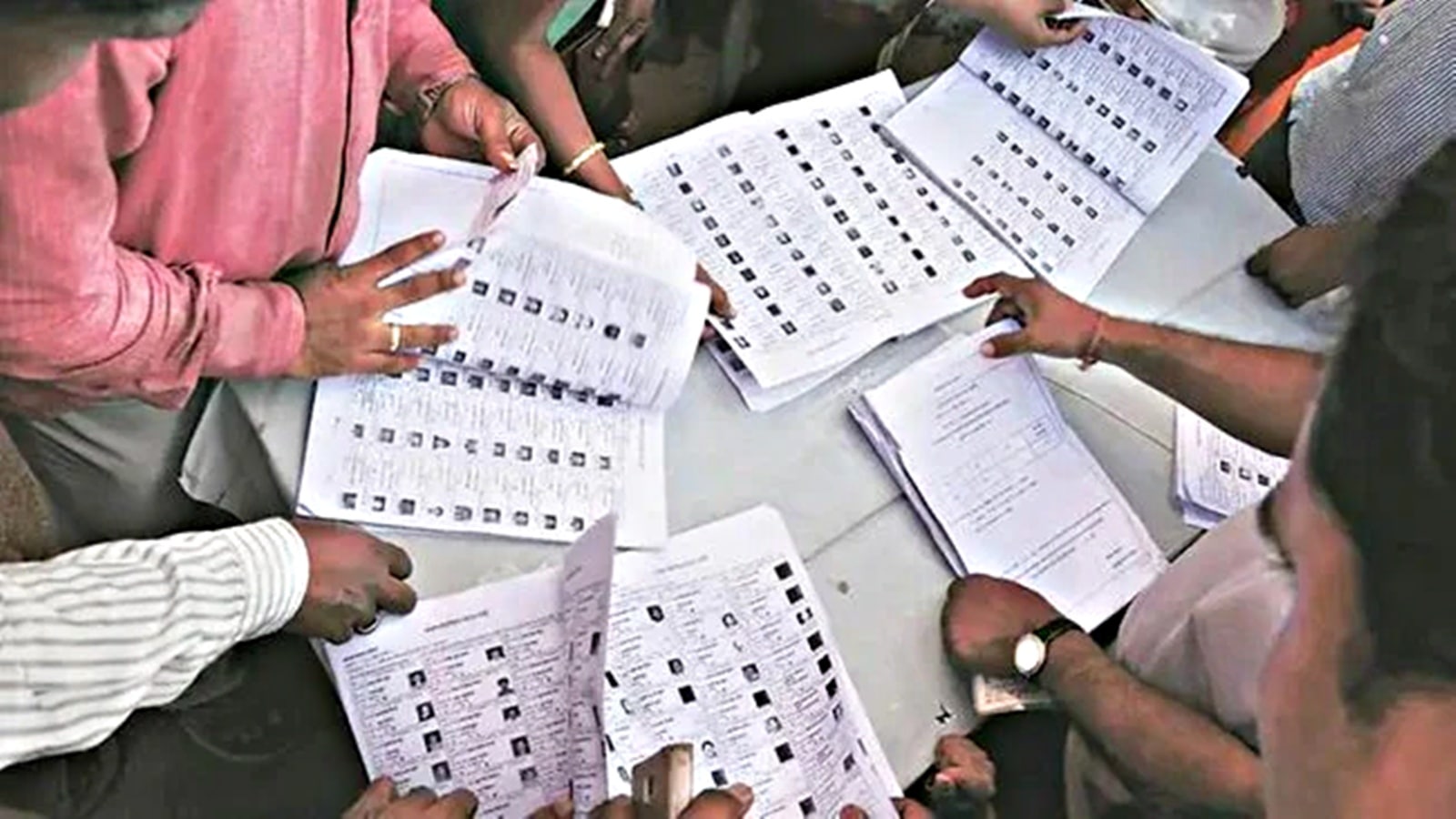
Crossing a river to get photocopies, paying money to get form filled — issues pile up at panel on voter list revision
How did your country report this? Share your view in the comments.
Diverging Reports Breakdown
Crossing a river to get photocopies, paying money to get form filled — issues pile up at panel on voter list revision
250 people from 14 districts come to Patna Monday for a public hearing on SIR by a panel. Booth-level Officers (BLO) only gave the family two enumeration forms that will now become the basis for exercising their right to vote. Many like Choudhary came to the event with issues — from running post to pillar to secure a document, to the difficulties in filling up a form, and the costs incurred to get the process done. With seven districts of Bihar sharing a border with Nepal, an Araria resident talks about concerns of people married to non-Indians. “Someone I know from Nepal married a man from Araria 20 years ago. She has voted in India in the last three elections, she is being asked to bring documents of her parents. As per law, she will not be treated as an Indian citizen,” she says. ‘I am a daily wage worker, I had to sell rice to bear the cost of photocopies of my Aadhar Card and also had to pay a neighbour Rs 100 to fill up my form because I am illiterate,’ says Kumari Devi.
He claims that the remaining seven forms had already been uploaded online without their knowledge.
“I am one of few educated people among the Dalit community in my area, where barely 30-40% people have got enumeration forms… Will submission of forms without documents keep us in the final electoral roll?” asks Chaudhary. He is one of the 250 people from 14 districts who have come to Patna Monday for a public hearing on SIR by a panel.
Story continues below this ad
The panel was organised Bharat Jodo Abhiyan, National Alliance of People’s Movement, Swaraj Abhiyan, Kosi Navnirman Manch, Summer Charitable Trust and Jan Jagran Shakti Sangathan. On stage were Justice (Retired) Anjana Prakash (former judge, Patna High Court); Wajahat Habibullah (former Central Information Commissioner and Chair, National Commission for Minorities); Professor Jean Dreze (Economist); Professor Nandini Sundar (Sociologist, Delhi School of Economics), D M Diwakar (ex Director, A N Sinha Institute, Patna) and Bhanwar Meghwanshi (Writer).
Social activist and Swaraj India’s president Yogendra Yadav, who is one of the petitioners in the Supreme Court challenging the SIR exercise, was part of the audience.
Story continues below this ad
As the July 25 date for the submission of enumeration forms approaches, many like Choudhary came to the event with issues — from running post to pillar to secure a document, to the difficulties in filling up a form, to the costs incurred to get the process done.
Phool Kumari Devi from Hasanganj in the Katihar district says she has had to sell rice at home for the process.
“I am a daily wage worker. I had to sell rice to bear the cost of photocopies of my Aadhar Card and also had to pay a neighbour Rs 100 to fill up my form because I am illiterate. I had no document other than Aadhar. I could not earn for two days because of this unnecessary exercise,” says Devi.
Story continues below this ad
Rajesh Kumar from Madhepura speaks of the washing away of belongings — including important documents — due to the recurrent flooding in the Kosi belt.
“In our area, people have to cross a river to get a photocopy. Most of my villagers could submit enumeration forms. But in most cases, they only had Aadhar Cards and that is not among the 11 documents prescribed for the exercise. We do not know how we will submit required documents if asked between 1 August and 31 August,” said Rajesh who has been voting after the 2003 prescribed cut-off.
With seven districts of Bihar sharing a border with Nepal, an Araria resident talks about concerns of people married to non-Indians.
Story continues below this ad
“Someone I know from Nepal married a man from Araria 20 years ago. She has voted in India in the last three elections. Now, she is being asked to bring documents of her parents. As per law, she will not be treated as an Indian citizen,” she says.
Summing up the arguments, Prof Dreze says: “Most people talked about four things — BLOs not reaching out to most of them, not giving them receipts, the submission of forms without documents, and a large number of forms getting submitted without the knowledge of voters.”
Yadav adds: “The Election Commission of India (ECI) has been accepting forms without one of 11 documents without having modified its order. When its original order said ‘duly-filled’ forms, it could imply documents attached. It is now the sole discretion of ECI to accept or reject the form…. The Law says a voter remains a voter… Barring some exceptions. Now, the onus is not on ECI but on voters to prove themselves as voters. We have apprehensions of the SIR targeting certain regions and certain communities”.
Story continues below this ad
As per a sample survey conducted by an organisation named Jansumvai of over 300 migrants, 72% had no idea what the SIR was, while 70% had not heard about the online application process.
About 50% of them had voted in the Bihar 2020 Assembly polls and 74% of them wanted to vote in the forthcoming Assembly polls.
Source: https://indianexpress.com/article/india/voter-list-revision-bihar-polls-issues-panel-10142999/
